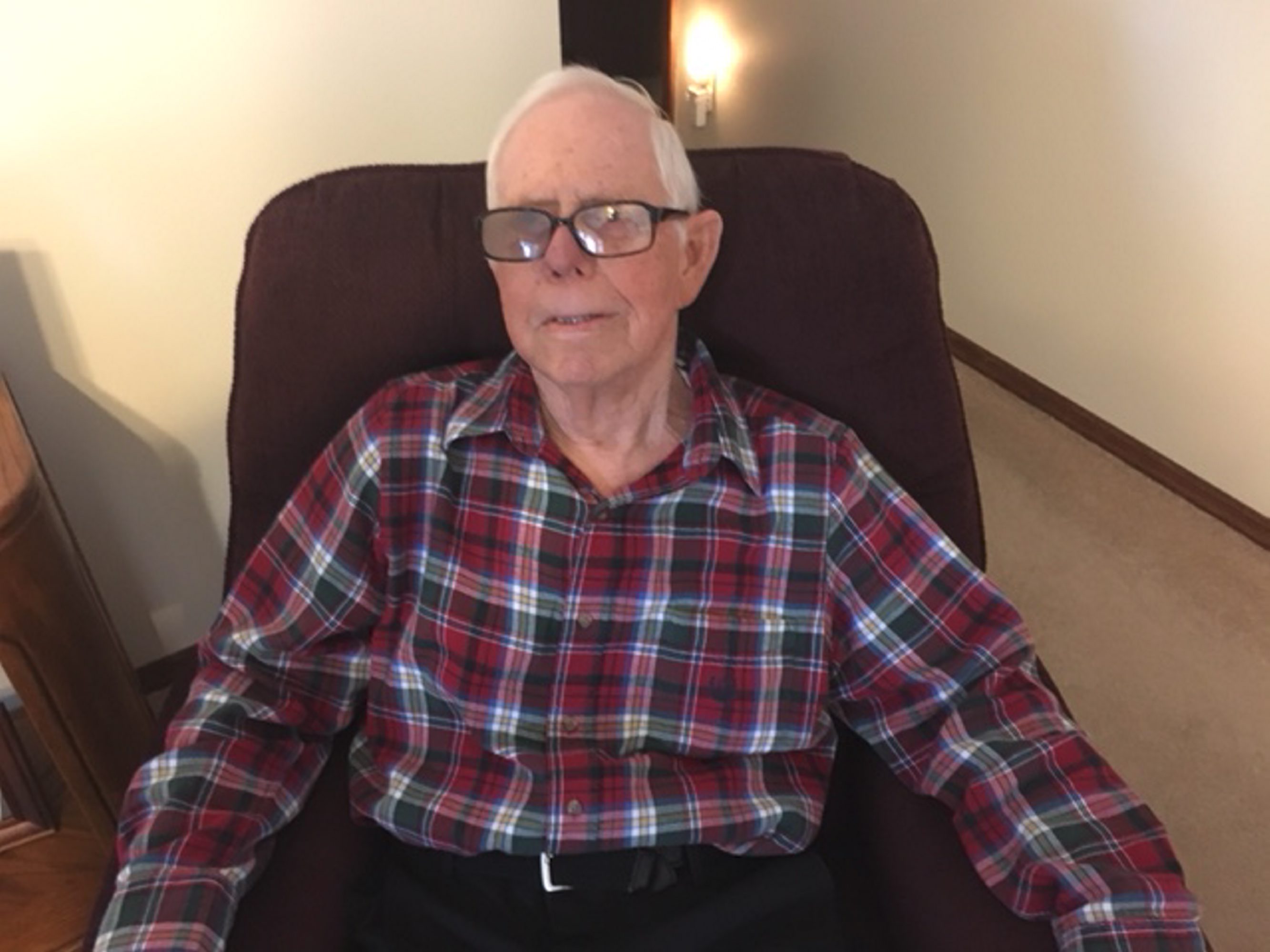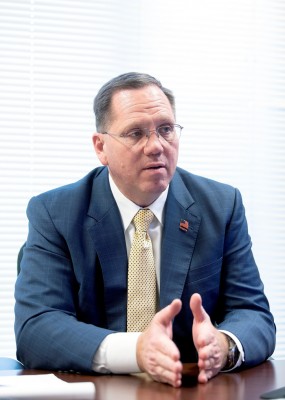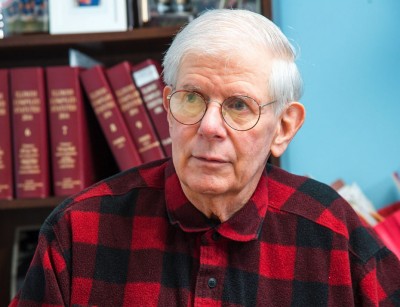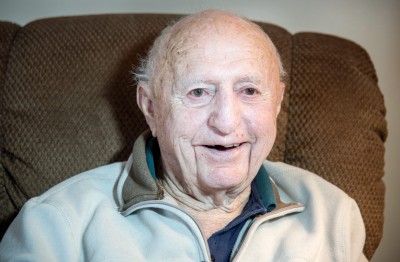Dick Oliver
By Paul Wood

Photo By Provided
CHAMPAIGN — From the Korean War to the Cold War to Vietnam, Dick Oliver kept the planes flying for 20 years.
The Air Force master sergeant, now 86, remembers well the paranoia of the Cold War, when his family was told to head for the mountains if there was a nuclear attack in the Cuban Missile Crisis in 1962.
“If we had an atomic war, we’d all be dead,” he said.
Oliver enlisted in the Air Force right out of high school after talking to a recruiter in Decatur.
“The Air Force guy said if I took the Army, we’d all be crawling on our bellies,” he remembered.
After basic, he was sent to the now-closed Chanute Air Force Base in Rantoul, where he would return more than once.
He served in the Air Force from 1949 to 1969, including in Korea, a B-52 bomber base in California during the Cuban crisis, and in Okinawa during the Vietnam War. His 20-year career took him all over the world.
At Chanute, he studied aircraft maintenance and became an instructor, so he spent a lot of time at other bases.
“If another base got a new airplane, they’d want a Chanute trainer, but it was easier to send the trainers to the other base,” Oliver said.
By 1952, his crew began working on RF-84F Thunderstreaks, with powerful engines to reach high altitudes for reconnaissance photos. They also carried machine guns.
The jet had several design problems that challenged the mechanics. It would eventually be replaced by the U-2, which made international news when one was shot down over the Soviet Union in 1960.
Soon, he was sent to Japan and then to Korea, in the middle of the war there.
They set up classes in a primitive building at a South Korean base called K-2 — originally a dirt and gravel runway — near Daegu City.
Some of his work there included fixing bomb-damaged planes.
Not far from the border, North and South Korean forces held K-2 at different times.
In his three months in Korea, Oliver said, he was never shot at — the greatest danger being when a water tower collapsed, sending plaster and concrete everywhere.
Back at Chanute, he remained on the fly — “we did 47 moves in nine years.”
“Life was always overtaken by military events,” he said.
There were trips to Japan and to Europe. Oliver accepted it.
“You can’t fly on an airplane if it’s broke,” he said.
He took a discharge after nine years, but re-enlisted. At Vance Air Force Base in Enid, Okla,, he married Kay. They’ve been together 58 years and have two children.
As technology changed, he was assigned to flight simulators, but not the sleek ones of today. They were analog — vacuum tubes — and took up enormous space.
The Cold War brought him to a California base where he worked on simulators for B-52s, nuclear armed long-range jets that could reach the Soviet Union.
During the Cuban Missile Crisis of 1962, the Strategic Air Command was put on alert for an exchange of nuclear bombs.
Kay remembers the scenario for a bomb being dropped on the base.
“We were supposed to always have a half-tank of gas, and food and water to get us to the mountains. It wouldn’t have done us any good,” she said.
Soon after, a flight simulator, which needed a train for transport, came up missing for a while.
“It was worth $3 million,” Dick said.
During the Vietnam War, he was in Okinawa, supporting B-52s that bombed Vietnam.
Once, a fully-loaded B-52 came to a halt at the edge of the runway, blocking the entire force. The lead plane blew up, not far from Kay and the kids.
“All that was left was an engine and a big hole in the runway,” she said.
In 1969, her husband retired from the service and took a job as a salesman. Then he took a civil service job at Chanute, in education and training.
“I’ve been really blessed,” he said.
Do you know a veteran who could share a story about military service? Contact Paul Wood at pwood@news-gazette.com.
Read more stories from local veterans:
 Mike Kessel
MAHOMET — Major Mike Kessel gives God credit for saving him in Iraq after a series of ambushes. During “the Battle of Ho …
Mike Kessel
MAHOMET — Major Mike Kessel gives God credit for saving him in Iraq after a series of ambushes. During “the Battle of Ho …
 Bernard Puglisi
CHAMPAIGN — Bernard Puglisi could easily have avoided serving as a Marine in Vietnam — in fact, he had to appeal a medic …
Bernard Puglisi
CHAMPAIGN — Bernard Puglisi could easily have avoided serving as a Marine in Vietnam — in fact, he had to appeal a medic …
 Bill Lowry
SAVOY — As a medic after the Battle of the Bulge, Staff Sgt. Bill Lowry assisted in dozens of surgeries. There were mass …
Bill Lowry
SAVOY — As a medic after the Battle of the Bulge, Staff Sgt. Bill Lowry assisted in dozens of surgeries. There were mass …